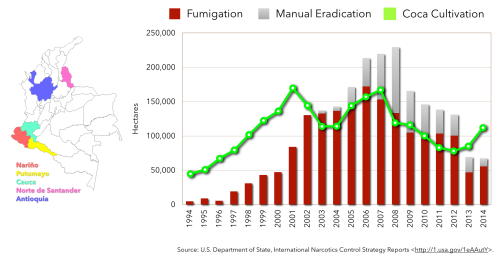Criticism of Restoring Ties With Cuba
Today President Obama announced that Cuba and the United States would open embassies and restore normal diplomatic relations. As usual, I immediately went to see not only what critics said, but how they framed their criticism.
Some of these are well-worn and ignorant of the fact that our past polices are precisely what helped legitimize the Castro government. Ending isolation is very risky for the Cuban government, but it is facing a major demographic challenge in addition to the risk of relying on the teetering Venezuelan government.
There is a new one criticism, namely legacy, and it's curious. The argument is that Obama is pursuing this policy to burnish his legacy, or to "go legacy shopping," as Ileana Ros-Lehtinen put it. Another Florida representative phrased it as a"legacy building bucket list." So many people are using this that I have to figure it's been planned.
What I find odd is that none of them dispute the fact that this will help Obama's legacy. In other words, it is widely viewed as popular in the short-term and as something that will make him look good in the longer term. If both of those are true, then we need to face the strong possibility that the policy is in fact a good one.
Here are some other excerpts:
Marco Rubio:
“Throughout this entire negotiation, as the Castro regime has stepped up its repression of the Cuban people, the Obama Administration has continued to look the other way and offer concession after concession. The administration's reported plan to restore diplomatic relations is one such prized concession to the Castro regime. It remains unclear what, if anything, has been achieved since the President's December 17th announcement in terms of securing the return of U.S. fugitives being harbored in Cuba, settling outstanding legal claims to U.S. citizens for properties confiscated by the regime, and in obtaining the unequivocal right of our diplomats to travel freely throughout Cuba and meet with any dissidents, and most importantly, securing greater political freedoms for the Cuban people. I intend to oppose the confirmation of an Ambassador to Cuba until these issues are addressed. It is time for our unilateral concessions to this odious regime to end.”
John Boehner:
"The Obama administration is handing the Castros a lifetime dream of legitimacy without getting a thing for the Cuban people being oppressed by this brutal communist dictatorship,"
Ileana Ros-Lehtinen:
As the Ladies in White, Jorge Luis Garcia Perez Antunez, Yris Perez Aguilera, and other pro-democracy leaders are routinely harassed, beaten, and imprisoned, the Obama administration has continued to turn its back on the Cuban people in order to pursue its goal of providing as many concessions as possible to the Castro regime. Not surprisingly, this administration has shown that politics trump policy in its decision-making process. Opening the American Embassy in Cuba will do nothing to help the Cuban people and is just another trivial attempt for President Obama to go legacy shopping.
Jeb Bush:
“The real test of the Obama administration’s rapprochement with the Castro regime in Cuba is not whether President Obama’s legacy is burnished with dubious diplomatic achievements and photo-ops, but whether improved relations between Havana and Washington advance the cause of human rights and freedom for the Cuban people,” the 2016 GOP presidential candidate said. “The ongoing detention of dissidents and continued human rights abuses suggest the administration’s policy is failing this test.”
Rick Perry:
Mr. Perry, a 2016 GOP presidential candidate, said the decision is the “most recent example of this president’s foreign policy that ignores reality in exchange for surface level political ‘wins.’”
“The truth is that since the Castro brothers assumed power in 1959, their policies have changed very little,” Mr. Perry said. “The Cuban people today are not any freer politically or economically, and President Obama has failed to account for what the Castro regime has done in the last several years that warrants such an enormous shift in a longstanding U.S. policy of economic embargo and diplomatic isolation.
“There is no indication that further normalization will do anything to actually liberate the Cuban people or advance American interests,” Perry said.
Bob Menendez:
Our demands for freedoms and liberty on the island will continue to be ignored and we are incentivizing a police state to uphold a policy of brutality. It is long past due for the United States to require concessions and changes from Cuba and thus far, we have seen neither. A policy of the United States giving and the Castro brothers freely taking is not in our national interest and not a responsible approach when dealing with repressive rulers that deny freedoms to its people. An already one-sided deal that benefits the Cuban regime is becoming all the more lopsided.”
"This is the only government in the Western Hemisphere, which the Obama administration has chosen to establish relations with, that is not elected by its citizens. The message is democracy and human rights take a back seat to a legacy initiative.”
Ted Cruz:
"President Obama announced today he is continuing his policy of unconditional surrender to Fidel and Raul Castro by rewarding one of the most violently anti-American regimes on the planet with an embassy and an official representative of our government. I, for one, want the Cuban people to know that there are still those who stand with them, and who know the Castros for what they are. I will hold any nominee President Obama sends to the Senate to be ambassador to Cuba, and I will work to disapprove any new funds for embassy construction in Havana, unless and until the President can demonstrate that he has made some progress in alleviating the misery of our friends, the people of Cuba."Read more...





